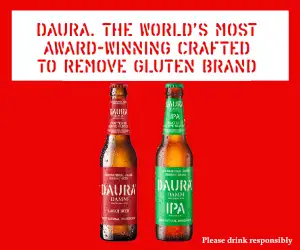-
Welcome to Celiac.com!
You have found your celiac tribe! Join us and ask questions in our forum, share your story, and connect with others.
-
Get Celiac.com Updates:Support Our Content
Symptoms, possible celiac
-
Get Celiac.com Updates:Support Celiac.com:
-
Recent Activity
-
- trents replied to jnstefan's topic in Post Diagnosis, Recovery & Treatment of Celiac Disease4
How long after being diagnosed with Celiac do you feel better?
Thanks for sharing, Karen. Certainly a needed reminder what we already knew (and I've posted many times on this forum) but sometimes forget, namely, autoimmune disorders tend to cluster. Where one is found, you can look for others to show up eventually. The thing that is unusual in your son's case is the onset of several of them at such a young age. My sister... -
- Nathan. replied to jnstefan's topic in Post Diagnosis, Recovery & Treatment of Celiac Disease4
How long after being diagnosed with Celiac do you feel better?
Hi there. My son is turning 16 this month. He had an endoscopy and biopsy to confirm celiac. He went gluten-free and his pain never got any better. I think it got worse. Months went by. The pain started around 7th grade. He missed a lot of school in 8th grade, and a whole lot in 9th grade. He couldn't go to school in 10th grade. All along the gastroenterologist... -
- Scott Adams replied to thejayland10's topic in Post Diagnosis, Recovery & Treatment of Celiac Disease10
Recent blood test results check in - TTG- IGA
Most likely cross-contamination I believe.
-














Recommended Posts
Create an account or sign in to comment
You need to be a member in order to leave a comment
Create an account
Sign up for a new account in our community. It's easy!
Register a new accountSign in
Already have an account? Sign in here.
Sign In Now